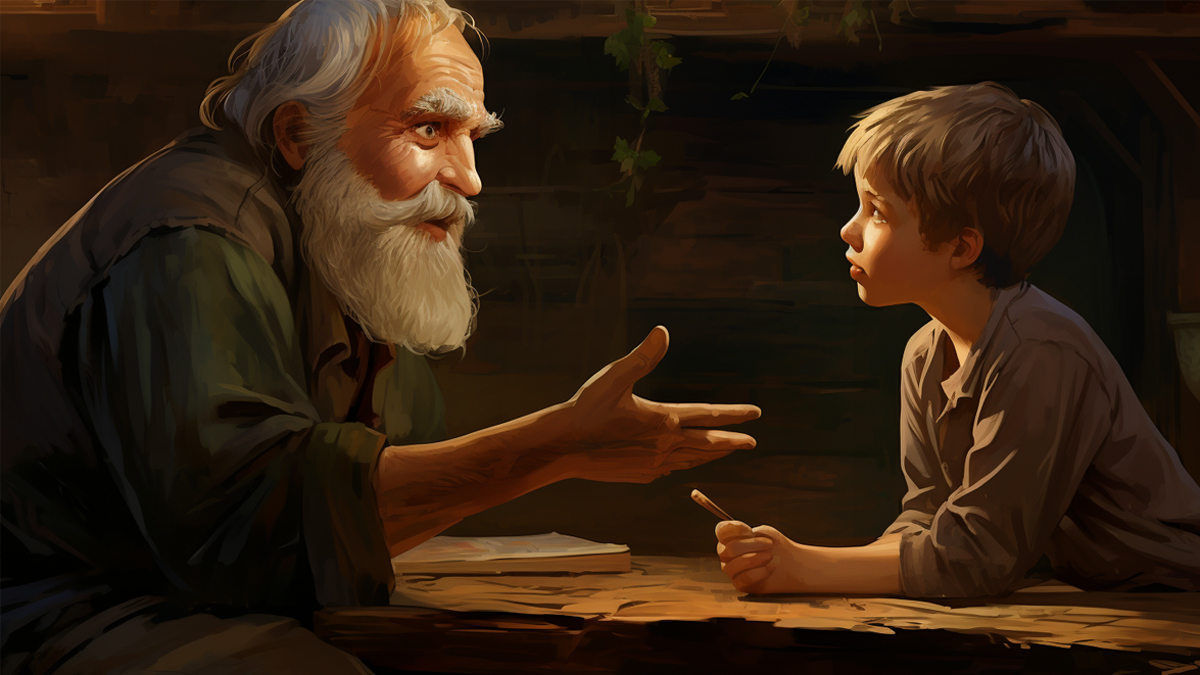Religion Is a Social Science, so Why Isn’t It Studied Like One?

While devotees of various faiths sometimes believe their religion was handed down whole cloth sometime during the Axial Age — or slightly earlier, as in Judaism, or later, as in Islam — we’d better be able to wrap our heads around religion if we treated it as a social science. At heart, that’s the function religion plays: a consensus of beliefs regarding that community’s relationship to its place and time.
Climate change, same-sex marriage, abortion — but a few modern issues being debated through the lens of antiquity. The reality, however, is that we’re really viewing the issues with current eyes, as much as some like to insert Jesus or Muhammad into the conversation. Magical thinking is part of our neural history: Despite Donald Trump’s recent banter about Mexicans, John McCain, and Lindsey Graham, certain segments of social conservatives actually took the biggest issue with his commentary regarding divine forgiveness.
We know that religion plays a large role in the political process, especially on the right. While Trump is going to face issues regarding veterans, he may very well lose more traction by admitting that he doesn’t chat with God. And the lens to look into this issue with is not one of belief, but of the process behind creating such a belief in the first place — and only a society as hell-bent on belief as America would put that ahead of important issues like climate change and the role of the military. The culture creates the consensus.
Vox recently published this article about the social sciences by investigating a recent study that claimed sitting down to talk with gays helps alleviate prejudice. Turns out the data were rushed before the cart; the lead authors were accused of being incentivized to produce the outcome they did.
This sort of meddling with results is not uncommon. Many corporations (Monsanto quick to mind; pharmaceutical companies often take the lead) are accused of this sort of dishonesty to speed their product to market. But the Vox article makes an important point: The fact that we’re catching more bunk research is a good thing, as it shows the strength of the peer review process. I agree, and feel that the blueprint the article lays out can be applied to religion as well.
Religion is the product of imagination combined with fragility. The first part is healthy; while we cannot study the particular visions in our head, thanks to our brain’s default network we can understand how we create visions and use metaphors in the first place. A healthy imagination plays an important part in problem solving and emotional processing. It is, essentially, what our brain does: It creates thoughts. And some of those thoughts are rather wild. This is a positive experience.
Fragility, or the fear of the unknown/death, is also an unavoidable part of the human process. While we might not usually label such “positive,” I wouldn’t call it negative either. We have to deal with mortality at some point; we have to recognize that we’re only here for a limited time. If the visions of the imagination help create the metaphors of religion, it is the fear of what’s to come that helps create the certainty that the religion you’ve chosen is the “right” one. The imagination is expansive; the fundamentalism that follows, restrictive. This is our eternal dilemma.
My introduction to studying religion from a scientific lens occurred in 1993 when reading Fritjof Capra’s The Tao of Physics, which inspired me to attain my degree in religion. While my career has mostly focused on neuroscience, the possibility of looking at religion from a scientific standpoint has been denounced by those who do not want their Oz revealed — although, oddly, such people often promote research when it verifies what they already believe in.
That’s why treating religion as a social science makes more sense. As the Vox article states,
A rise in scientific retractions might indicate misconduct is on the rise — but it also might reflect how changing scientific norms have made scientific misconduct easier to detect and expose.
The most common reason the religious feel that science should not be involved in their practice — the metaphysical one — should not be an obstacle. Many of the issues regarding other social sciences, such as psychology, geography, and anthropology, were once mysterious. Researchers advanced these fields by working together and peer-reviewing the evidence. The same benefits could be attained by treating religion in the same manner.
Obviously the distance between theory and reality is vast, which is in fact why getting the religious to work together is challenging. They take their theory to be reality, which is the definitive part of the problem. Their distance is mainly between tolerance and acceptance; the first is possible, rarely the second. It would conflict too heavily with their worldview.
Still, the trend has been away from mysticism. It would require the growing population of agnostics and atheists to be open to metaphorical beauty of the imagination — strange that we understand mythologies as stories but treat religions as truths — while being open to the evidence. And the religious would have to come to terms with the testability of their convictions. Just as the Dalai Lama noted regarding Buddhism, if science were to render something in his practice false, Buddhism would need to adjust. More open-minded leaders like this would help transform our understanding of religion greatly.
Image: Eric Thayer / Stringer




